
Dietitian Abroad: Greece Edition
Eat, travel, and relax can only mean one thing – another trip abroad. This trip was a little more special; It was actually a honeymoon with my husband! Greece had been on my travel list for years. The beautiful Aegean sea, notoriously healthy Mediterranean diet, and reputation as the birthplace of western civilization, created quite the appeal. Luckily, the hubby was on board for the adventure.
The Mediterranean Diet
Renowned for its heart-health and anti-inflammatory benefits, the mediterranean diet is often considered one of the ‘healthiest’ diets in the world. Research continues to support that people who put an emphasis on produce, fish, whole grains, and healthy fats not only weigh less, but also have a decreased risk for heart disease, depression, and dementia.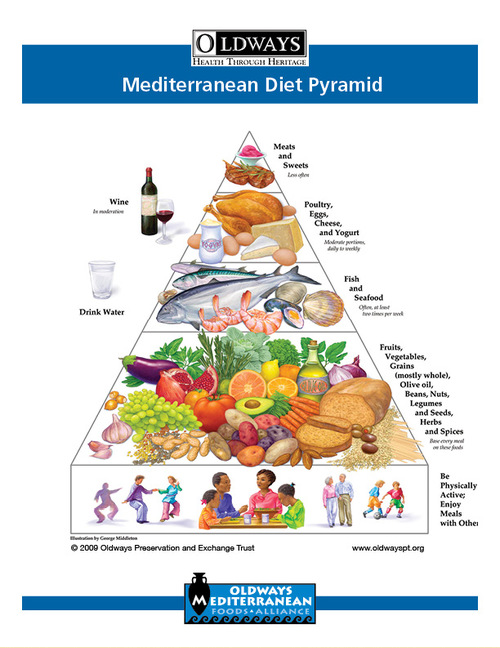
The Mediterranean diet emphasizes;
1. Eating primarily plant-based foods, such as fruits and vegetables, whole grains, legumes and nuts
2. Replacing butter with healthy fats such as olive oil and canola oil
3. Using herbs and spices instead of salt to flavor foods
4. Limiting red meat to no more than a few times a month
5. Eating fish and poultry at least twice a week
6. Enjoying meals with family and friends
7. Drinking red wine in moderation (optional … or not optional. hehe)
8. Getting plenty of exercise
It wasn’t too challenging to stick to the key components of the mediterranean diet. Of course – there were a few nights of sampling Ouzo followed by a plate of french fries, or a lunch platter of salty Souvlaki (grilled meats), but for the most part, this traditional eating pattern is still a cultural norm. Oldways has some great tips to implementing the mediterranean diet in your own home.
Traveling by foot
Though we traveled by plane, train, bus, taxi and ferry, our preferred way of travel was by foot. Much like our trip to Spain, some days our walking totaled over 15 miles.
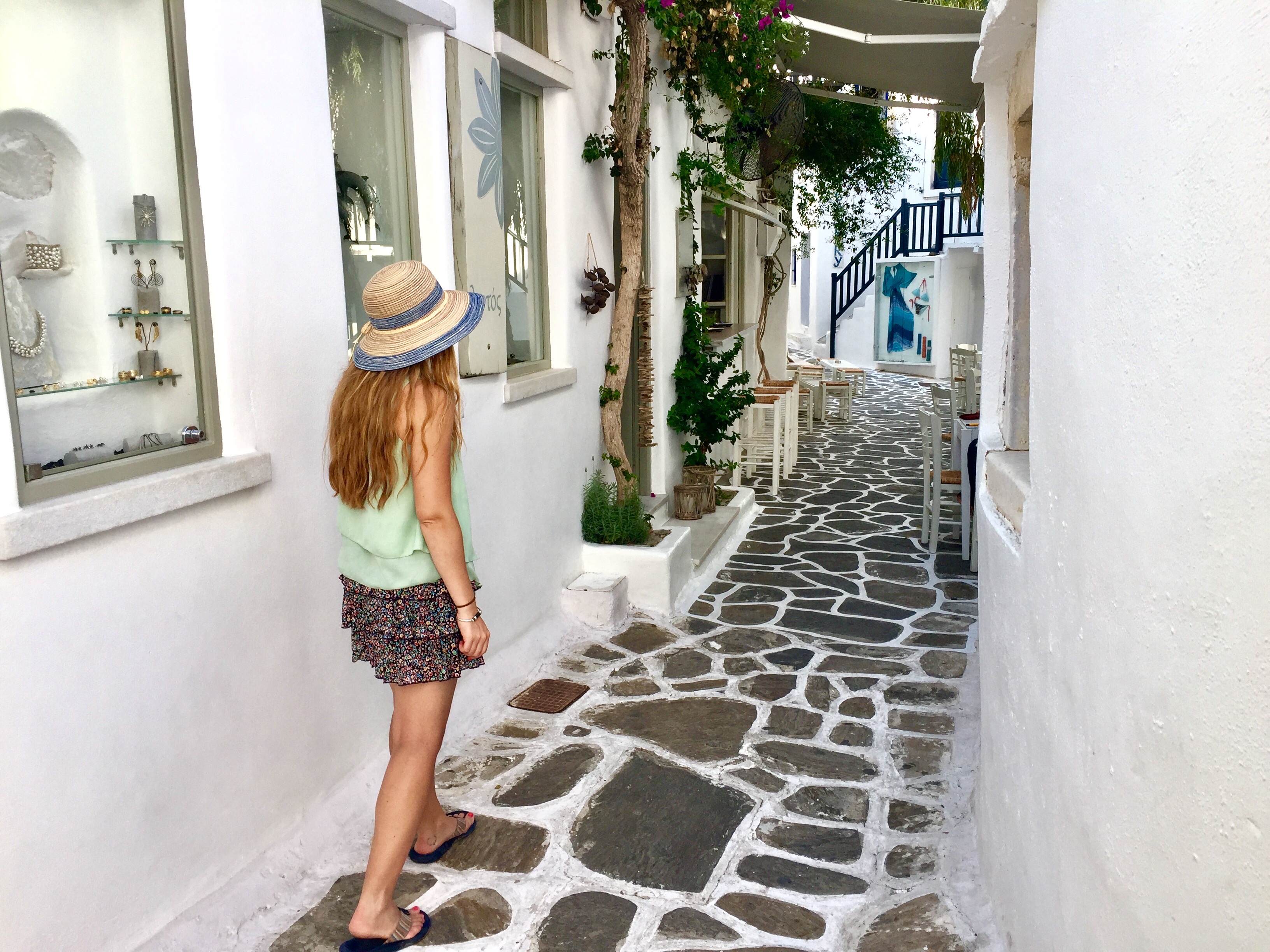
Walking through the narrow streets of Naousa, on the northern park of Paros island. Many of these shops, restaurants, and homes are inaccessible by car.
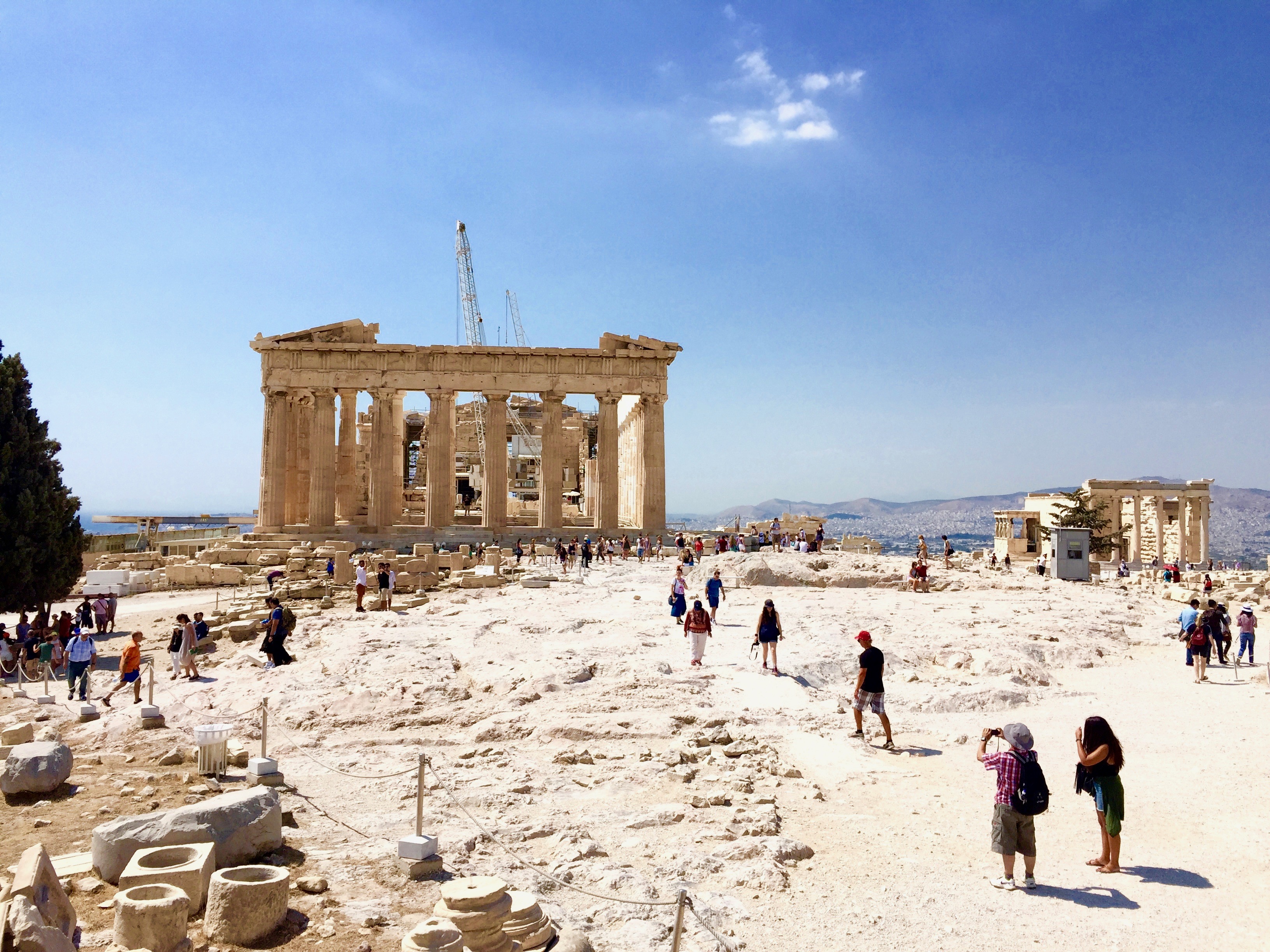
Making the trek up the Acropolis of Athens to see the Parthenon, constructed in 440 BC. It’s been destroyed and rebuilt a few times over the past 2500 years, but it looks pretty good for its age.
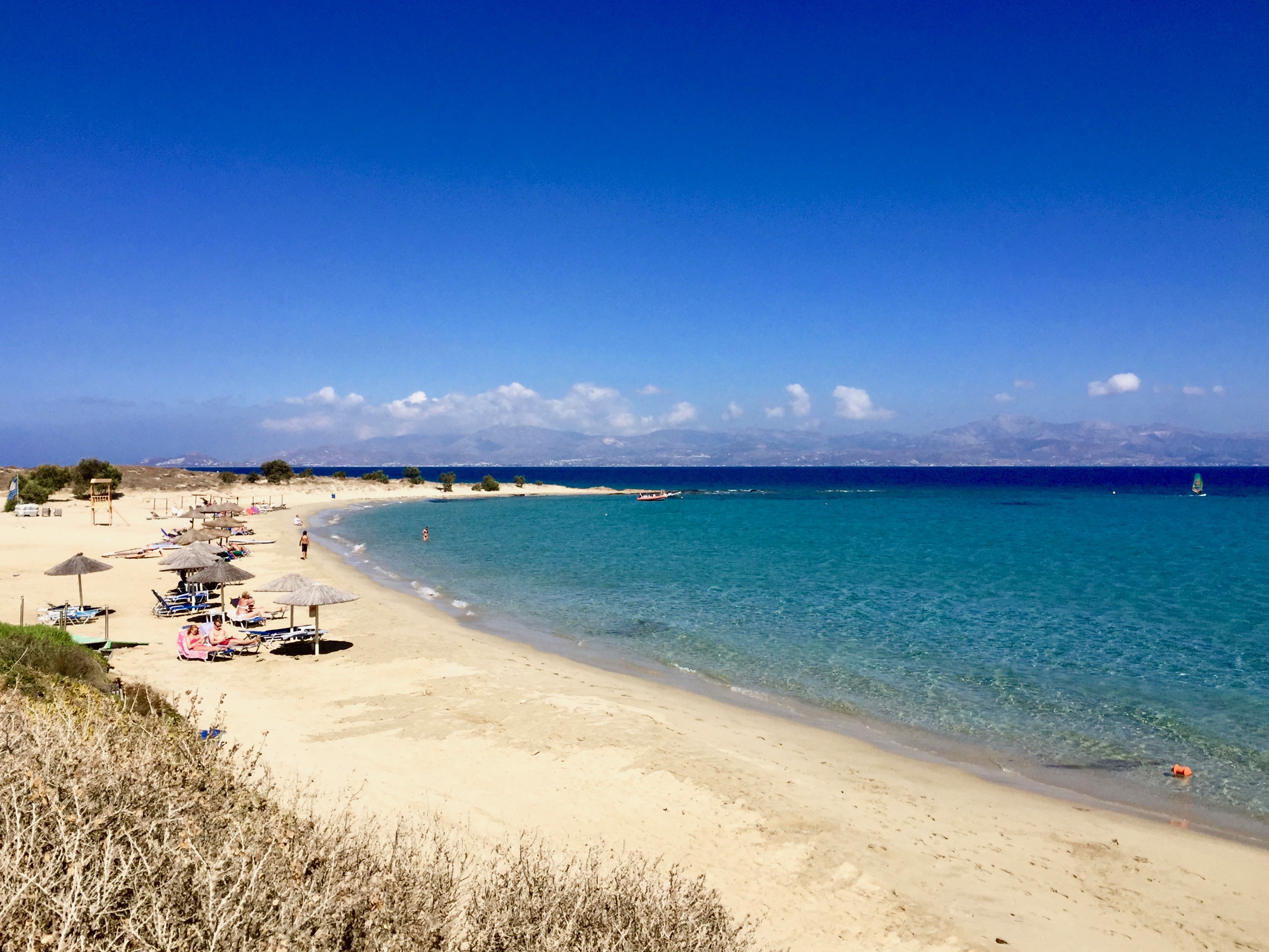
Using one the many walking paths to view the eastern coast of Paros – also a very popular place to windsurf.

Panathenaic Stadium in Athens, built in 500 BC
Physical fitness is a national pastime in Greece. Home to the first Olympic games, Greeks celebrated the body’s beauty and strength and embraced physical training as a “philosophical ideal” and essential part of life. They celebrated the idea of having a sound mind, in a sound body. The modern Greek continues to uphold these traditional values through preservation of historic sites like the Panathenaic Stadium in Athens.
Fresh is best
Greeks take a lot of pride in their fresh and locally produced ingredients. Most of the foods we consumed were grown, raised, caught, or prepared by locals in region. From the Santorini tomato, feta cheese, and thyme honey, to the many family-owned ouzo distilleries, affordable artisan food is a way of life.
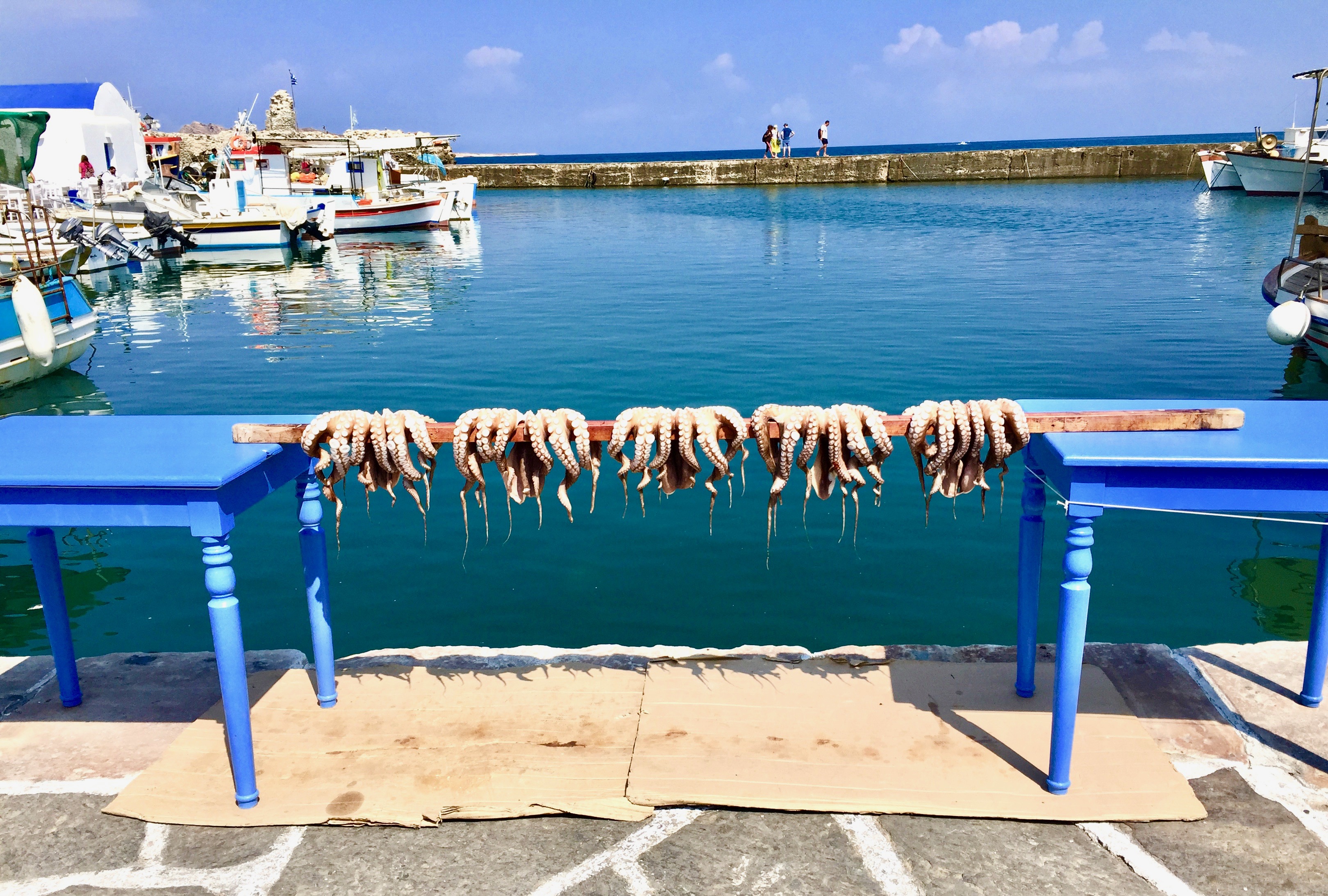
Panathenaic Stadium in Athens, built in 500 BC

Hand-stuffed Lobster ravioli with jumbo shrimp in a garlic-smoothered tomato alfredo sauce.
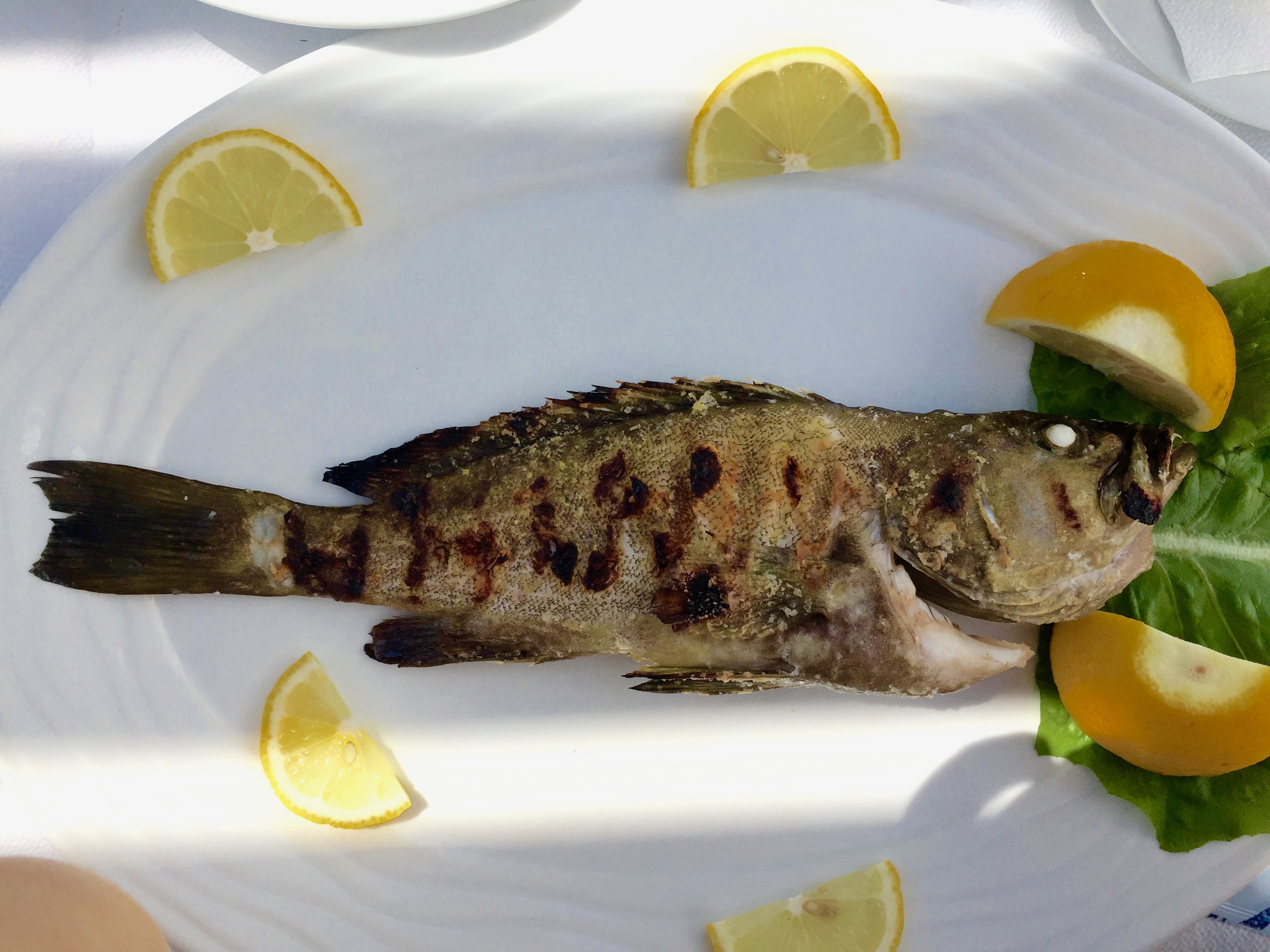
A fresh catch for lunch. Due to linguistic barriers, I was invited back into the kitchen to select my fish
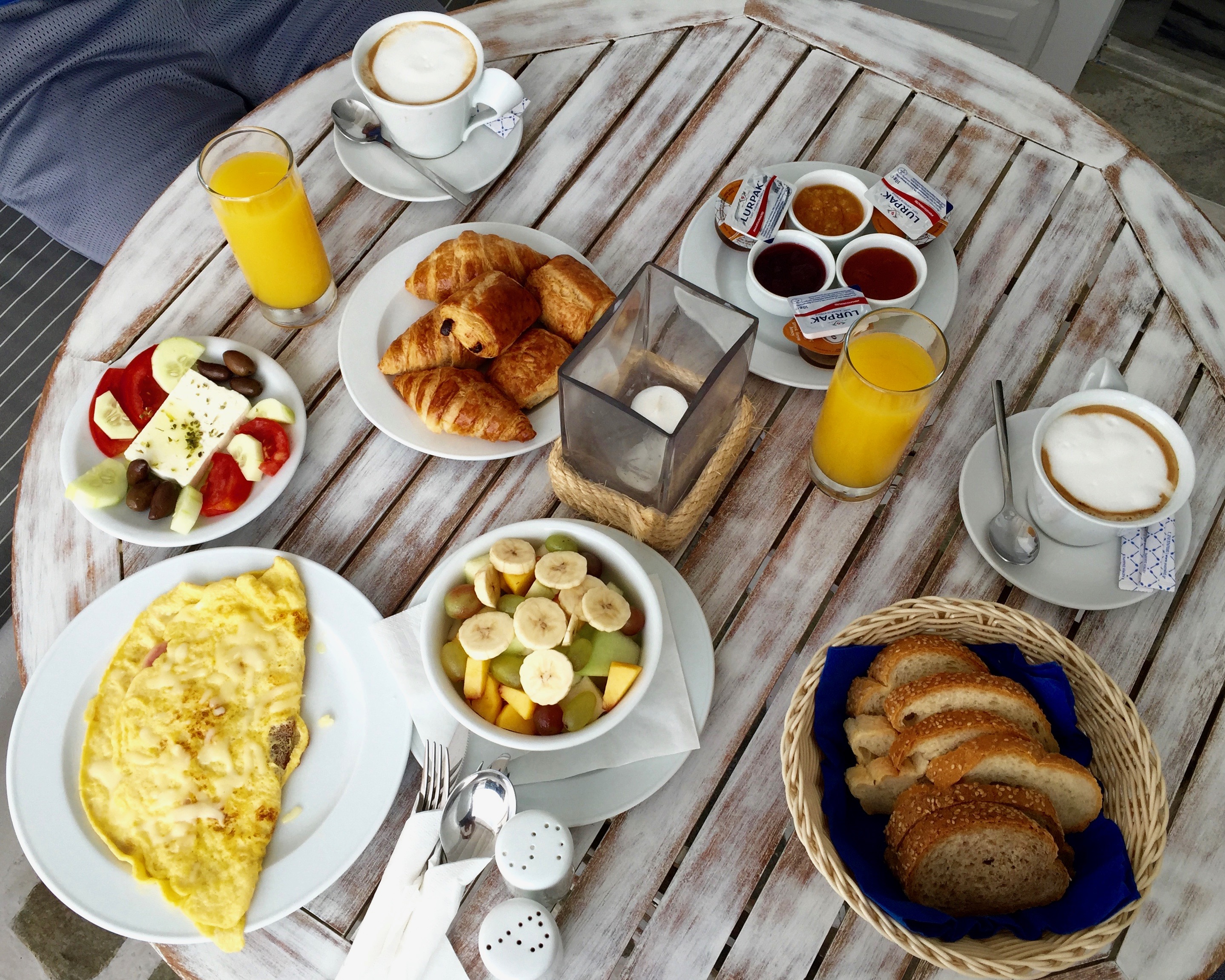
The traditional Greek salad, Horiatiki, will always (and only) include tomato, sliced cucumber, green pepper, sliced red onion, Kalamata olives and of course feta cheese (sliced, never crumbled). It is seasoned with dried oregano and salt and doused with extra virgin olive oil and a splash of red wine vinegar.
Amazing Wines
Greece is one of the oldest wine-producing regions in the world. The earliest evidence of Greek wine has been dated to 6,500 years ago. What makes Greek wine so unique are the more than 300 indigenous grape varieties, some of which have been cultivated since ancient times. From the mainland to the islands, there was no shortage of great wines.

Much like the tradition of tapas in Spain, wine and other alcoholic beverages are always served with small bites. It is rare to find Greeks drinking alcohol without eating. These bite sized snacks, called Mezedes, slow the absorption and lessen the affects of the alcohol, allowing Greeks to socialize into the late hours. Our beverages came with anything from nuts, olives, fresh bread and oil, or cheese, to homemade rolled grape leaves called dolma.
A Sweet Finish
A trip to Greece would not be complete without sampling some of the sweet pastries. We sat down at a cafe in the heart of Athens to try a few.
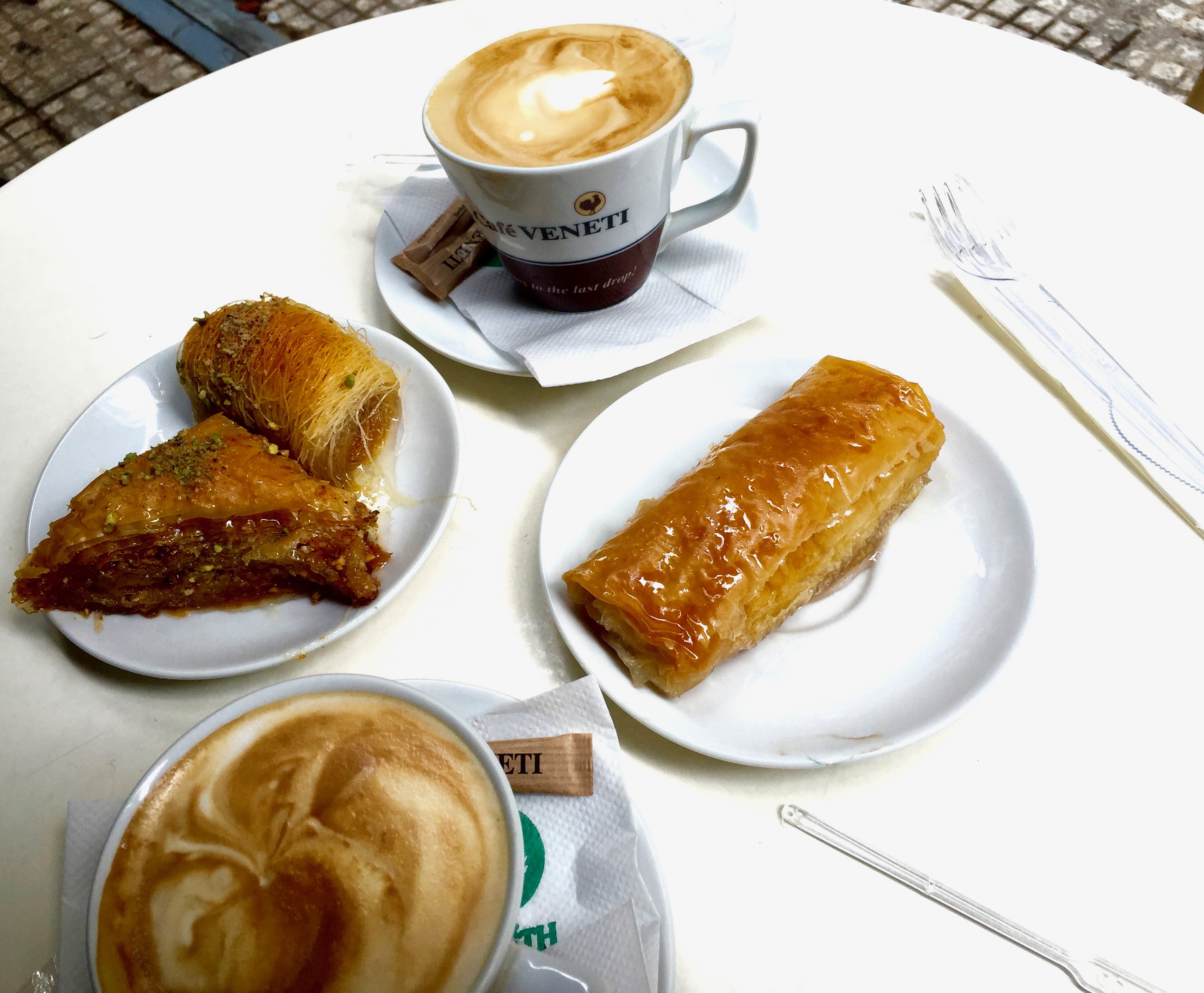
L. to R. – Baklava, Kataifi, and Galaktoboureko roll
Crispy, nutty and extra syrupy, Baklava is a delicious traditional Greek dessert made of layers of crispy golden-brown phyllo, filled with chopped nuts and garnished with lemon scented syrup. Kataifi features a delicious nutty center rolled inside crisp, thread like strands of pastry, baked, then soaked in a sweet honey syrup. The Galaktoboureko is has a creamy almond custard baked into a crispy phyllo pastry shell. Considered Baklavas little brother, it’s much lighter and less sweet.

Mint chocolate chip gelato!






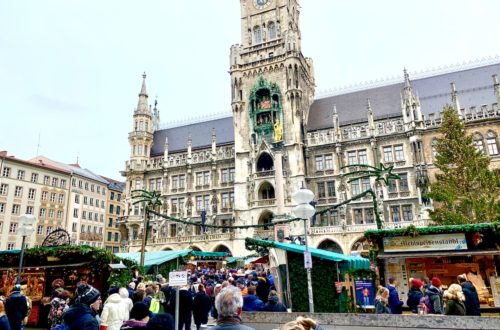

One Comment
Janet Goldman
Hi, Sarah and Jesse, Happy Honeymoon! Looks gorgeous. I just received an email from Lee Webb wondering how your family is. I replied, but am wondering if you would please either send Lee your mom’s current email, or give Lee’s to your mom. Lee’s e-address is [email protected]. Thanks, and take good care. Love, Jan